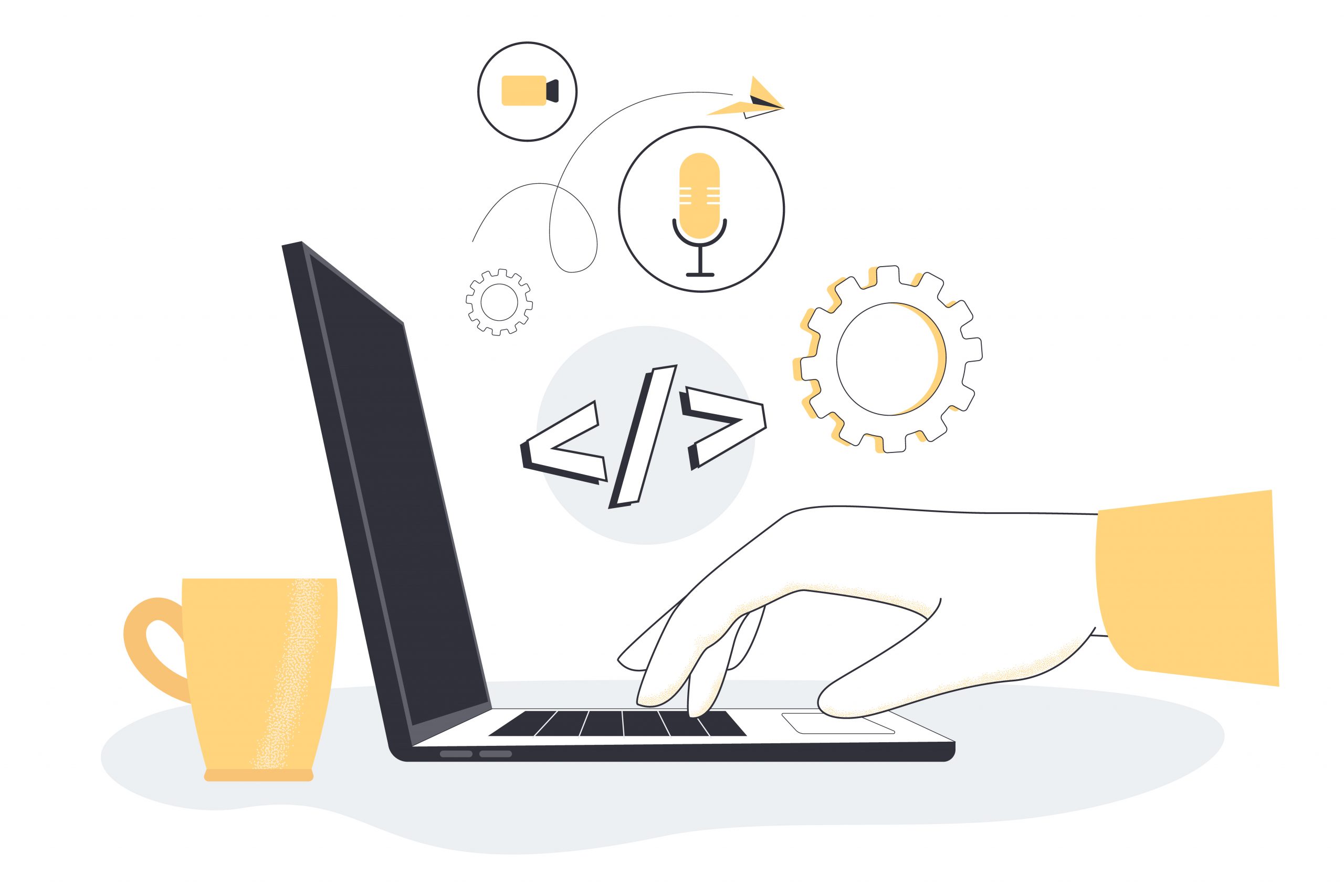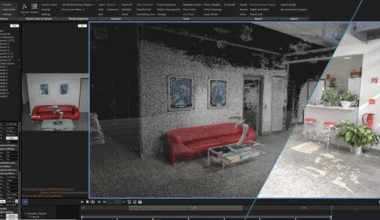Meta Description: As the industry keeps maturing, more and more blockchain products are emerging in the market. And everyone is looking forward to a blockchain world where they can enjoy the benefits that it has to offer.
As blockchain technology becomes more popular and mainstream, there are a lot of new blockchain products that are emerging in the market. It can be overwhelming to try and make sense of it all, especially if you’re trying to determine which products will be best for your business. Luckily, we’ve got the rundown for you.
Bitcoin
The most well-known blockchain product is the cryptocurrency bitcoin, which has grown from a fledgling concept into an increasingly popular alternative method of payment. Bitcoin started as a currency that allowed users to send money without needing a bank account. Still, it’s since become much more than just a digital currency—it’s also a way for people to invest in the digital space without needing any bank or financial institution. Still, cryptocurrencies aren’t the only blockchain products out there. There are plenty of other things that use blockchain technology in exciting ways.
Loomia
Loomia is a company that aims to revolutionize the fashion industry by using blockchain technology. Loomia’s mission is to create a platform that allows for the creation of innovative fabrics that can be used to track the movement of products, collect data about how people use these products, and then share this information with companies involved in the supply chain. The ultimate goal of Loomia’s technology is to make consumer goods more secure, efficient, and personalised.
Blockstack
Blockstack is a decentralized computing network and app ecosystem that puts you in control of your identity and data. Blockstack is open source, so anyone can make apps on top of it or build new tools to contribute to the network. Blockstack also has its token, called Stacks. Stacks are used to secure the network. Developers also use them to create new applications. Finally, Blockstack is a peer-to-peer network of computing devices shared by users worldwide.
Dfinity
Dfinity is a blockchain operating system that provides decentralised “cloud” computing services, including applications, storage, and databases. The Dfinity team describes it as a public “Internet computer” that anyone can use for building cloud apps and smart contracts without permission.
Features of Dfinity include:
- Decentralized governance: Each node in the network has one vote and may propose changes to the network, from protocol upgrades to economic policy changes. Changes are implemented by majority vote.
- Built on Threshold Relay: A faster consensus algorithm than Bitcoin or Ethereum. The average block time is five seconds. Unlike Proof of Work networks like Bitcoin, Threshold Relay doesn’t require large amounts of energy.
- Traitor tracing: Incentivizes users with malicious intent by providing financial rewards for identifying malicious nodes or attacks against the network’s integrity.
OpenBazaar
OpenBazaar is an open-source project to create a decentralised peer-to-peer commerce network online, circumventing the need for a middle-man entirely. At the time of writing, OpenBazzar 2.0 is still in beta and already has 50,000+ users. The network is entirely made up of individuals running the software who connect directly. It uses bitcoin as currency and can be used to purchase both physical products such as clothes and digital products such as imported music files. OpenBazaar has no central authority. It cannot be shut down by any one person or company nor can it be censored by anyone. It is the first decentralized marketplace that’s live today – at least until Ethereum’s much-anticipated status network goes live later this year
Request Network
The Request Network is a decentralized network built on top of Ethereum, allowing anyone to request a payment anywhere. With the Request Invoice protocol, everyone will be able to create invoices integrated into their accounting software and send them from an easy and familiar user interface. All of this happens securely and privately with the use of blockchain technology. The recipient can pay securely, and all the information is stored in a decentralized authentic ledger. This results in cheaper, easier, and more secure payments and allows for a wide range of automation possibilities, like bookkeeping automation, automatic payments with cryptocurrencies or time-based payments.
Coinhouse
Coinhouse is a cryptocurrency broker. It’s France’s answer to Coinbase, and it’s fast becoming a favorite among the crypto community. Its simple user interface makes it an excellent choice for those new to cryptocurrency, and its trading services are ideal for those looking to buy Bitcoin with a credit card.
Skuchain
Skuchain is a supply chain management platform that leverages blockchain technology to digitize trade and commerce. The company’s mission is to create a fairer, more open global supply chain by enabling secure collaboration between organizations with different interests in the same goods. Skuchain’s product, BRUCO, which stands for Blockchain Records Utilizing Consensus Optimization, is an ecosystem of enterprise applications made possible by blockchain and internet of things technology. It allows multiple parties to access, audit and update data on the same digital ledger at once, creating transparency across the entire business process while maintaining individual privacy. This enables large multinational organizations to track their products and work with each other, suppliers and customers in real-time through a shared platform.
A few additional features of BRUCO: it can provide instant financing from banks or other sources without intermediaries; it can be used for loyalty programs and integrates with existing ERP systems. With all this functionality built into one product using one platform, Skuchain provides value for manufacturers, carriers and other stakeholders in the supply chain industries.
Origin Protocol
Origin Protocol is a decentralized protocol that allows buyers and sellers of fractional use goods and services (car-sharing, service-based tasks, home-sharing, etc.) to transact on the distributed, open web. The platform typically uses the IPFS and Ethereum blockchain. Origin Protocol aims to enable actual peer-to-peer commerce without brokers or intermediaries.
Origin Protocol is made up of many pieces working together: centralized APIs in conjunction with decentralized intelligent contracts, dApp frontends for buyers and sellers to interact with markets, reputation systems for user engagement, external marketplaces where Origin users can list their goods or services for sale or rent (such as Airbnb), developer tools such as SDKs and documentation for third parties who wish to integrate Origin into their products.
OrbitDB
OrbitDB is a serverless, distributed, peer-to-peer database that uses IPFS and libp2p to replicate data among peers. OrbitDB can be used to build both applications and protocols and is designed for application developers interested in decentralized databases.
OrbitDB is an open-source project, and all of its packages are licensed under the MIT license.
Hyperledger
You may have heard of Ethereum, a blockchain-based decentralized platform for smart contracts. It’s famous for its cryptocurrency, Ether, like Bitcoin but not as good.
Hyperledger is a little different—it’s an open-source collaborative effort created to advance cross-industry blockchain technologies. The Linux Foundation hosts it, and it’s used to build private and permissioned blockchains. Unlike public blockchains such as Bitcoin and Ethereum, Hyperledger has no native currency or native token. However, it can still use any cryptocurrency (except Stellar) on top of its protocols to incentivize node operators to run the network.
For example, JP Morgan uses Hyperledger to build Quorum (a permissioned fork of Ethereum), while Accenture uses Hyperledger Sawtooth (a permissioned fork of Bitcoin).
Ripple
Ripple is an open-source technology and one of the most well-known blockchain products. It gives banks and payment providers a fast, reliable, and low-cost option to send money globally. It is a distributed ledger based on a shared pledger-based that uses a consensus process between validating servers to ensure integrity.
Conclusion
Blockchain technology is quickly gaining popularity among businesses, organizations, and individuals. It allows for the secure storage and exchange of verified information. While the technology is in its early stages, many industries are investing in it because of its potential to revolutionize how we manage data. One way to capitalize on this potential is through blockchain products. Many different types of blockchain products are available, such as cryptocurrencies, smart contracts, and decentralised applications (DApps). Each type has its benefits and drawbacks depending on what you’re looking for in a blockchain-based product. This can make it challenging to choose which type is right for you, so we compared popular types of blockchain products to come up with a list of the best options currently available today.





